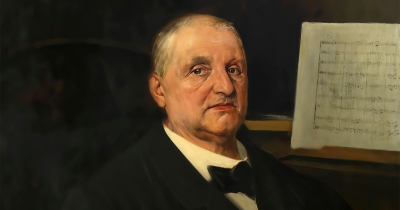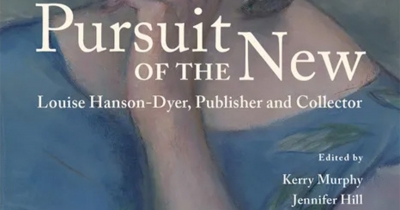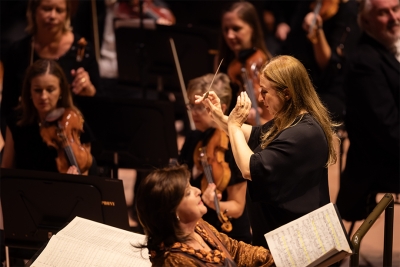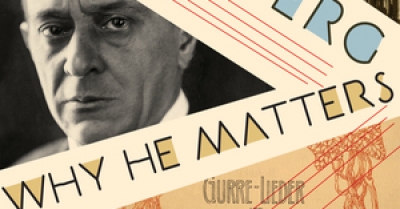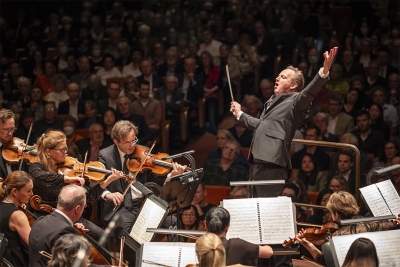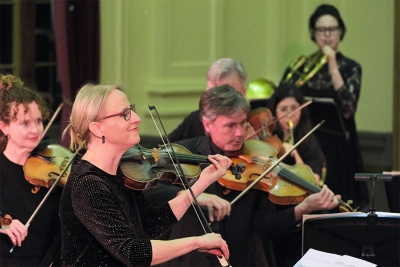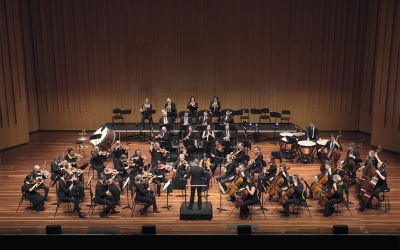Malcolm Gillies
Sign up to Book of the Week and receive a new review to your inbox every Monday. Always free to read.
Recent:
On 4 September 2024, the classical world of music, and especially its Austro-Germanic heartland, will celebrate the bicentenary of Anton Bruckner’s birth. Australia’s homage to this symphonic Titan is relatively modest, though these months do include performances of his Ninth (Brisbane, QSO, Johannes Fritzsch), and Fourth (Melbourne and Geelong, MSO, Daniel Carter; Hobart, TSO, Eivind Aadland), along with the Sydney Symphony Orchestra’s four performances of the Eighth Symphony, under Simone Young. Her global reputation increasingly rides on dynamic interpretations of large later-Romantic works, by Richard Wagner, Gustav Mahler, Richard Strauss, as well as Bruckner.
... (read more)Pursuit of the New: Louise Hanson-Dyer, publisher and collector edited by Kerry Murphy and Jennifer Hill
Want to write a letter to ABR? Send one to us at This email address is being protected from spambots. You need JavaScript enabled to view it..
... (read more)What is Gurrelieder? Arnold Schoenberg’s massive cantata, or oratorio, or symphonic psychodrama, is technically a song cycle, presenting ‘Songs of Gurre’, a small Danish settlement best known for its crumbling medieval castle. A five-part sequence of naturalist poems, by the Danish ‘Modern Breakthrough’ writer and botanist Jens Peter Jacobsen, became the text of Schoenberg’s cycle, in a lacklustre German translation by Robert Franz Arnold, to which Schoenberg made few revisions.
... (read more)To celebrate the year’s memorable plays, films, television, music, operas, dance, and exhibitions, we invited a number of arts professionals and critics to nominate their favourites.
... (read more)Along with Beethoven, Schubert, and Bruckner, Gustav Mahler wrote nine symphonies. For each composer there was an incomplete, or unrecognised, tenth symphonic essay, which diligent musicologists have attempted to flesh out into meaningful ‘continuity scores’ or reconstructions. Mahler was barely fifty when he completed his Ninth Symphony and dared to tempt the fates with a Tenth; the growing seriousness of a heart complaint, however, meant that death, already a frequent visitor to earlier works, was never far from his mind. He died in 1911, not having heard in performance any of his Ninth (1909–10), his incomplete Tenth (1910–11), or his Das Lied von der Erde (Song of the Earth, 1908–9) – some four hours of his most moving music, much of which remained under-exposed for four decades until the ‘Mahler renaissance’ started in the 1950s.
... (read more)Midsummer Dreams: Mendelssohn Scottish and Beethoven Eight
A century ago, as Australia’s nascent capital planned its performing-arts future, it opted for a ‘commodious’ assembly hall, serving conference and recreational purposes, and doubling as a municipal theatre. Completed in 1928, Albert Hall was to be the ‘centre from which will radiate all those aspirations that are truly national’, as then Prime Minister Stanley Melbourne Bruce pompously intoned at its opening. Since then, the Hall’s record has been less illustrious, often housing carpet or shoe sales, community fairs or eisteddfods. With its peeling ceiling, drooping curtains, winter draughts, and cramped, overly elevated stage, it has proven a challenge to several generations of concert entrepreneurs.
... (read more)‘Bringing the world back home’ was an early strapline of Australia’s SBS network. In those early multicultural days, it emphasised that being Australian did not restrict you from being culturally plural. It had the unfortunate implication, however, that Australia was not actually part of ‘the world’. We stood apart. Zoom forward to Covid-struck 2021, and Australia desperately wants to stand apart. Bringing that world back home has proven quite a technical difficulty, in sport, business, culture, even family reunion.
... (read more)

